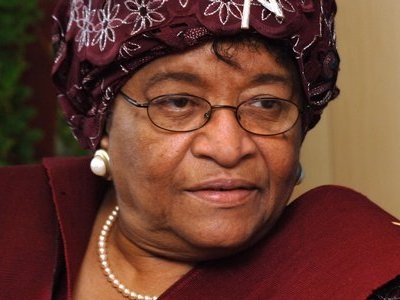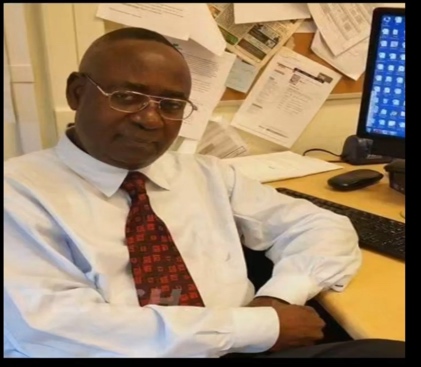Liberia’s Children: Voiceless Victims of the Civil War
The Liberian Civil war since its inception in December of 1989, has brought about the disruption of food supplies, the destruction of crops and agricultural infrastructures, the disintegration of families and communities, the displacement of populations and the destruction of educational and health services and of water and sanitation systems. All of these destructions can in no way be compared to the seriousness of the damage and heavy toll on the minds of Liberian children who lived through and witnessed various forms of atrocities during the war. The wounds inflicted by the civil war on children – physical injury, gender-based violence, psychosocial distress, are affronts that would have a lasting impact on the present and future human resource development of Liberia. Armed conflict indeed affects all aspects of child development, such as physical, mental and emotional components.
The war in Liberia has exacted terrible tolls on children. Children and their families have suffered as refugees, as displaced people within their own national borders, or as civilians remaining at home in or outside of war zones. The wars have affected children's physical health, mental health, day-to-day life, and hopes for the future. The wars have also extracted a heavy toll on the health care system through the loss of facilities and infrastructure, the loss of supplies and equipment, and the loss of physicians and nurses; and the economic hardships of war have resulted in fewer resources for health care. Before the war, reportedly, there were several medical doctors within the country. The number of doctors decreased gradually as the war-years progressed.
Graca Michael, Expert of the Secretary General of the United Nations, stated in his report on child soldiers that, when children experienced traumatic or other events in times of war, they may suffer from increased anxiety about being separated from their families, or they may have nightmares or trouble sleeping. He emphasized that children may cease playing and laughing, lose their appetites and withdraw from contact. And those younger children may have difficulty concentrating in school. Older children and adolescents may become anxious or depressed, feel hopeless about the future or develop aggressive behavior.
Those in the professions of education and behavioral sciences, have realized that infants and toddlers who witnessed violence either in their homes or in their community show excessive irritability, immature behavior, sleep disturbances, emotional distress, fears of being alone and regression in toileting and language. Exposure to trauma, especially violence in the immediate environment, interferes with a child’s normal development of trust and later exploratory behaviors, which lead to the development of autonomy. Despite the limited research in this area, however, much can still be gleaned from existing studies about the effects of children’s exposure to violence.
One of the most alarming trends relating to children and armed conflicts in Liberia is their participation as active fighters. Children as young as 8 years of age were being forcibly recruited, coerced and induced to become combatants. Charles Taylor’s NPFL, Prince Johnson’s INPFL, ULIMO J, ULIMO K, and MODEL & LURD manipulated children into violence that they are too young to resist and with consequences they cannot imagine.
The children, who participated within the activities of the various Liberian Armed groups, most of them were from impoverished and marginalized backgrounds or separated from their families. While on the other hand, children from wealthier and more educated families left the country before the war escalated, while others were discouraged by their parents from participating in rebel activities.
Child soldiers were recruited in many different ways. Some were conscripted especially under the Charles Taylor & Samuel Doe’s governments, others were press-ganged or kidnapped, and still others forced to join armed groups to defend their families. In many instances, recruits were arbitrarily seized from the streets, or even from schools and orphanages, when armed militia, police or army cadres roam the streets, picking up anyone they encountered. During the war, hunger and poverty, drove some parents to offer their children for service; and encourage their daughters to become wives of rebel commanders and fighters. During the war years, children became soldiers simply in order to survive. The various rebel groups provided a refuge, serving as a kind of surrogate family. Children sometimes join one of the rebel groups to guarantee simple regular meals.
Liberians residing in the Diaspora have seen for themselves or have heard about the negative behaviors of some newly arrivals, especially among the younger population. The lack of respect for their parents, inability to stay and complete high school, sexual improprieties, irresponsible attitudes and ill-mannered are attributes that continue to echo in various Liberian communities here in the United States. In Liberia, one hears about armed gangs roaming the streets of Monrovia at night conducting mayhem and other forms of violent acts on peaceful residents. The question that one needs to ask is: what can we do as Liberians to create a stable frame of mind for each of Liberia’s child of war?
The Report by Graca Machel, Expert of the Secretary-General of the United Nations identified recommendations on some of the solutions that have been discussed and put in place at the international level. Some recommendations for action as put forth by the United Nations are:
C. Intergovernmental bodies, United Nations agencies and other organizations should support Governments in strengthening national legislative frameworks challenging any aspect of discrimination against women, girls and child-headed households with particular respect to custody, inheritance and property rights.
D. United Nations bodies and NGOs are urged to give urgent attention to the situation of child-headed households and develop policy and program guidelines to ensure their protection and care.
Liberian residing in the Diaspora need to participate in this endeavor, the launching of a Liberian Education Trust (LET) in New York City many years ago, is a step in the right direction. LET, according to The Providence American ( African American Newspaper, published in Providence, Rhode Island) , is a charitable trust formed to harness American support for the restoration of basic education in post-civil Liberia. LET’s mission accordingly, is to construct and rehab fifty schools, train 500 teachers and award 5,000 scholarships practically to girls.
The elderly program provides entertainment and social hour once every month to most Liberian elderly residing in Rhode Island. Health professional within the state are invited from time to time to help educate community members and their families on health issues, especially the administering of medications.
The extreme and often prolonged circumstances of armed conflict can interfere with identity development. As a result, many adolescents, especially those who have had severely distressing experiences, cannot foresee any future for themselves. They may view their lives very pessimistically, suffer from serious depression or even commit suicide. They may have lost their trust in people, and may not wish to seek help or support from adults. Sudden changes in family circumstances, such as the death or disappearance of parents, can leave young people without guidance, role models and sustenance.
The task of reintegration of Liberian children of war, is the responsibility of all Liberians, the government cannot do it alone. Proper reintegration program can also help to normalize life and to develop an identity separate from that of the soldier. A difficulty to be faced is the likelihood that former combatants may have fallen far behind in their schooling, and may be placed in classes with much younger children. Specific measures may be required, such as establishing special classes for former child soldiers, who can then be reintegrated into regular schools.
The process of reintegration in Liberia must help children establish new foundations in life. Re-establishing contact with the family and the community is important for former child soldiers who have grown up away from their families and who have been deprived of many of the normal opportunities for physical, emotional and intellectual development. Providing educational and vocational opportunities to former child combatants may prevent them from rejoining military units, and at the same time improve the economic security of their families. For a former child soldier, an education is more than a route to employment.
The success and durability of the Liberian democracy depends on the availability of an educated middle class. The greatest peril to stability in Liberia is illiteracy of Liberian youth. The 14 years of war have taught us the lesson of illiteracy. When eighty percent of a country’s population is uneducated, it is not a laughing matter; it is a time bomb waiting to explode.
Subscribe
Login
0 Comments







